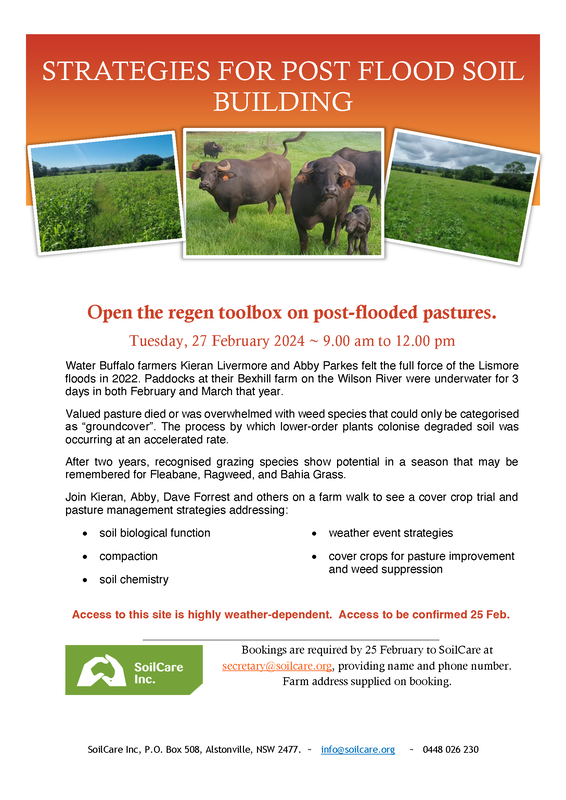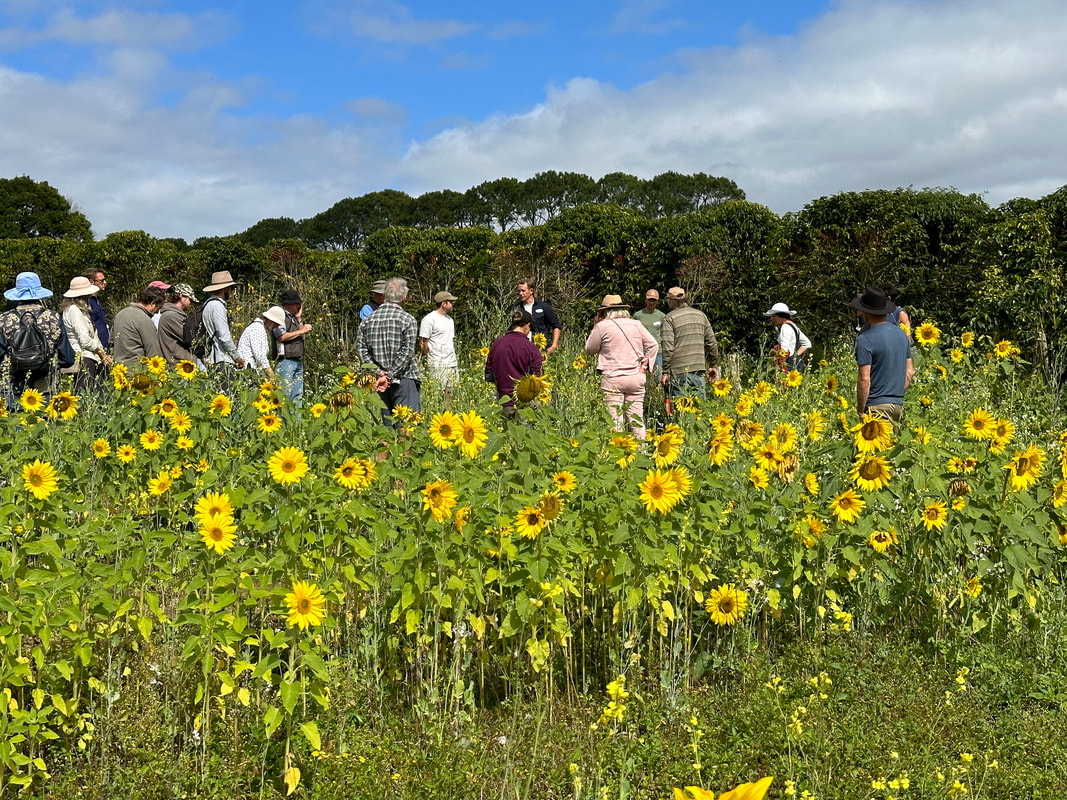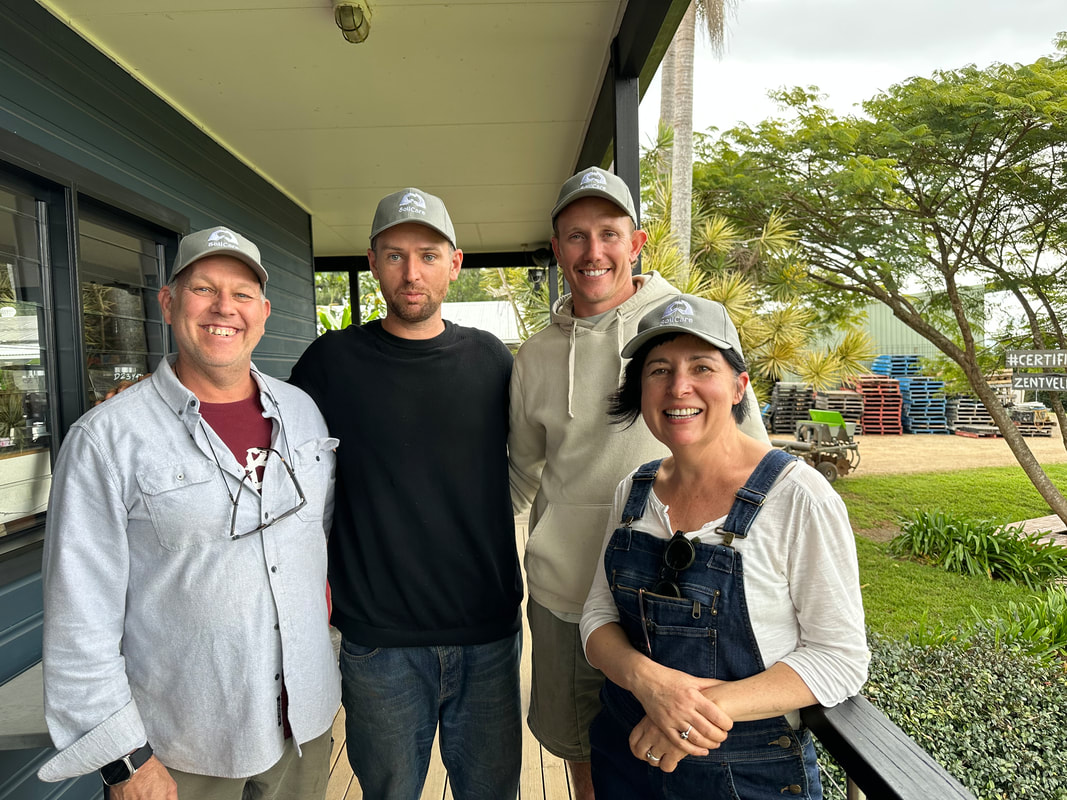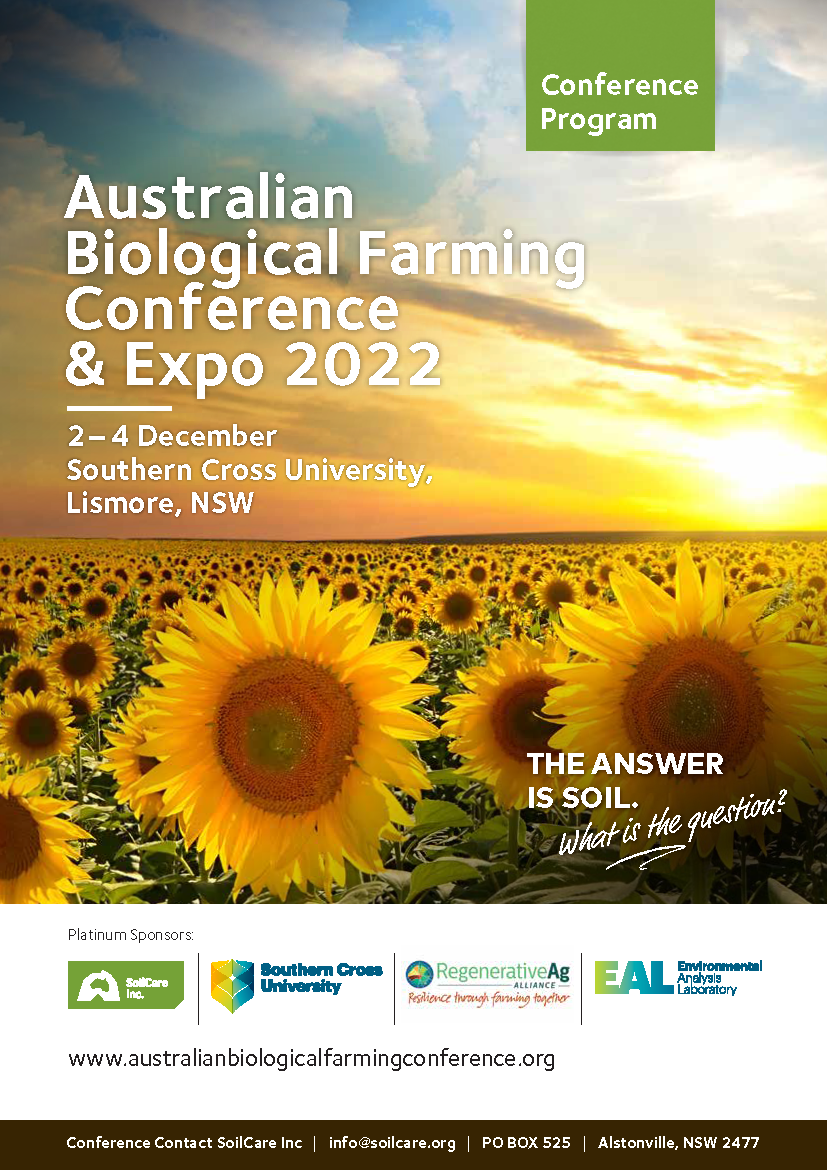Welcome to SoilCare Inc
Based in the Northern Rivers, NSW Australia,
SoilCare is an organisation of primary producers , soil professionals
and students with special interests in healthy soils and healthy farms.
SoilCare is an organisation of primary producers , soil professionals
and students with special interests in healthy soils and healthy farms.









